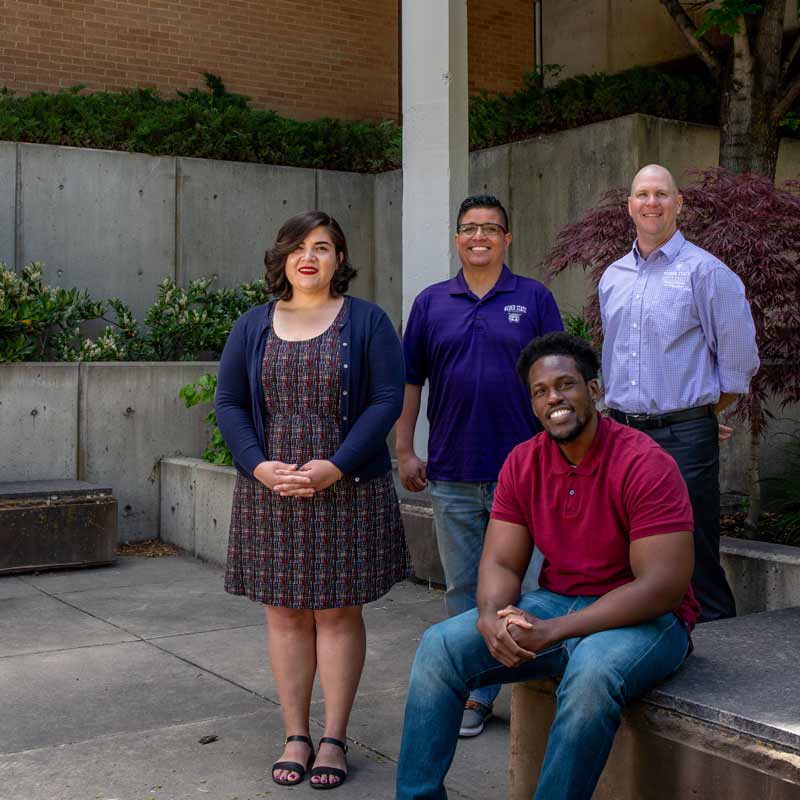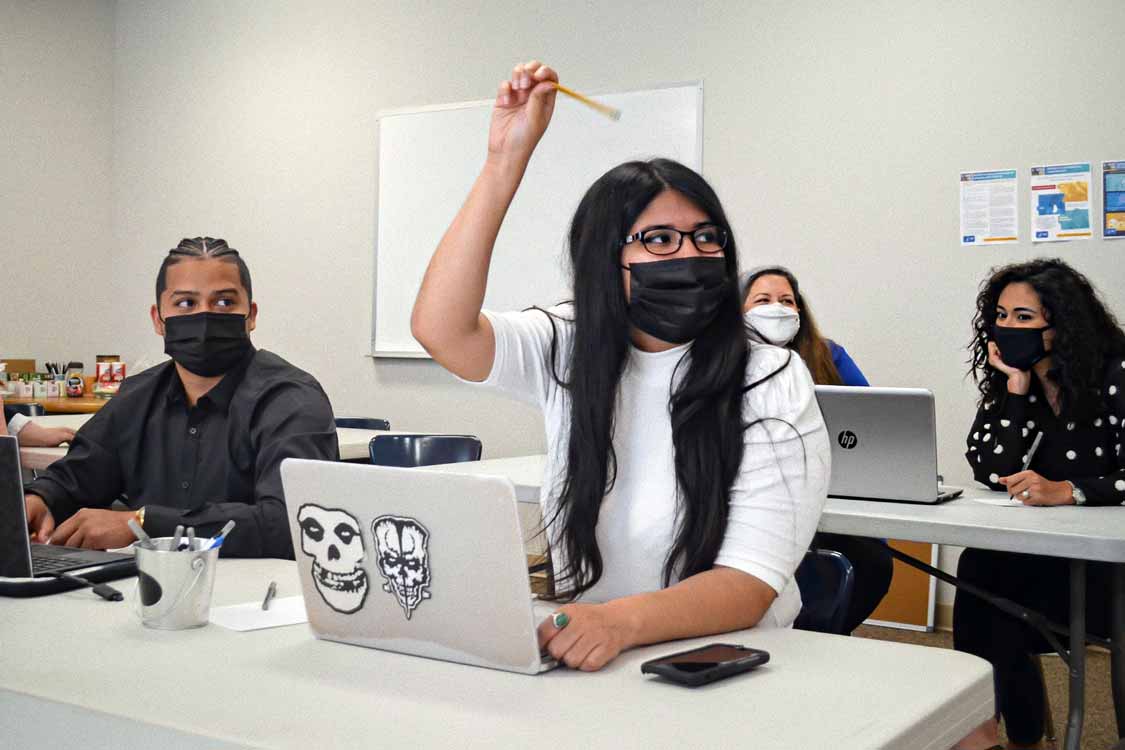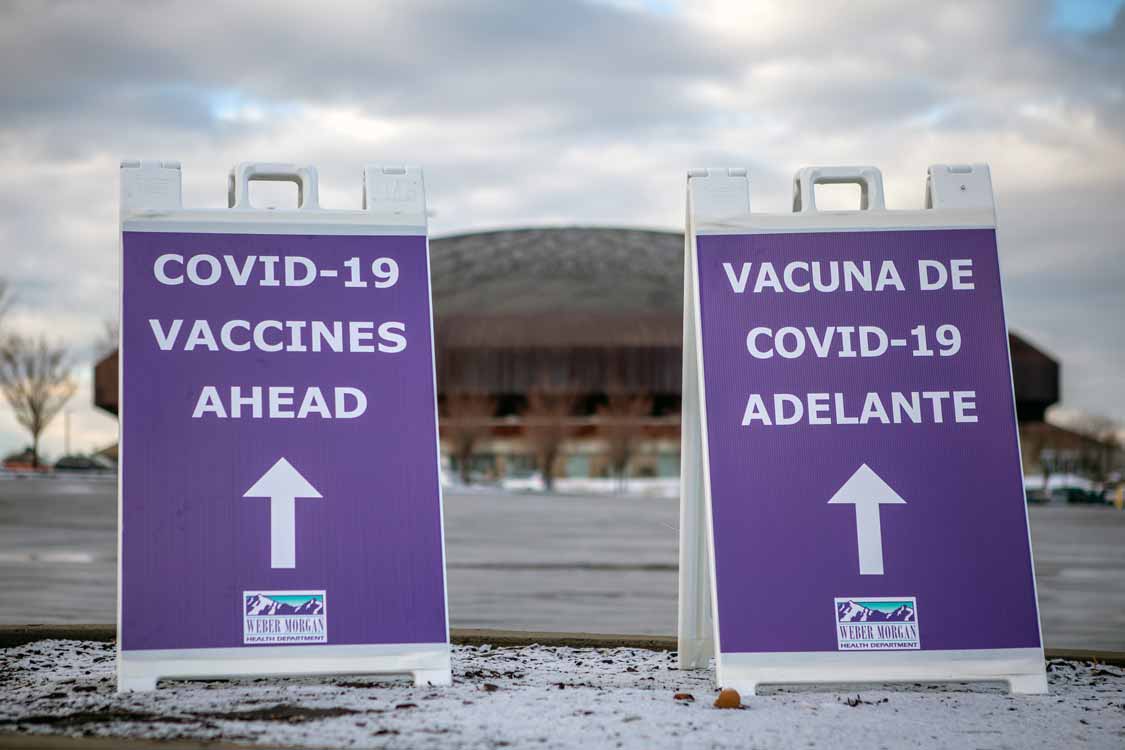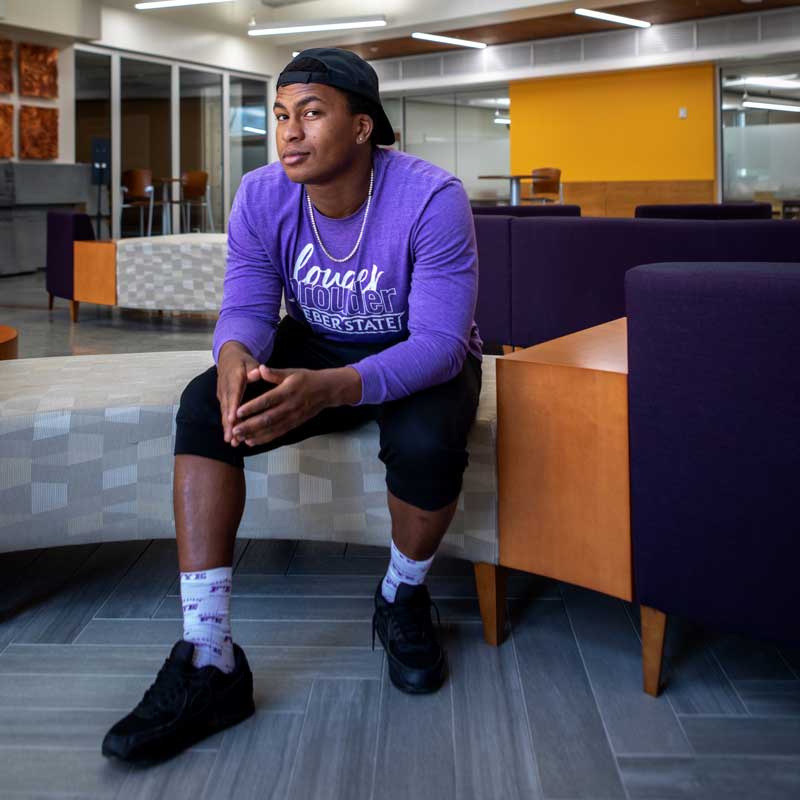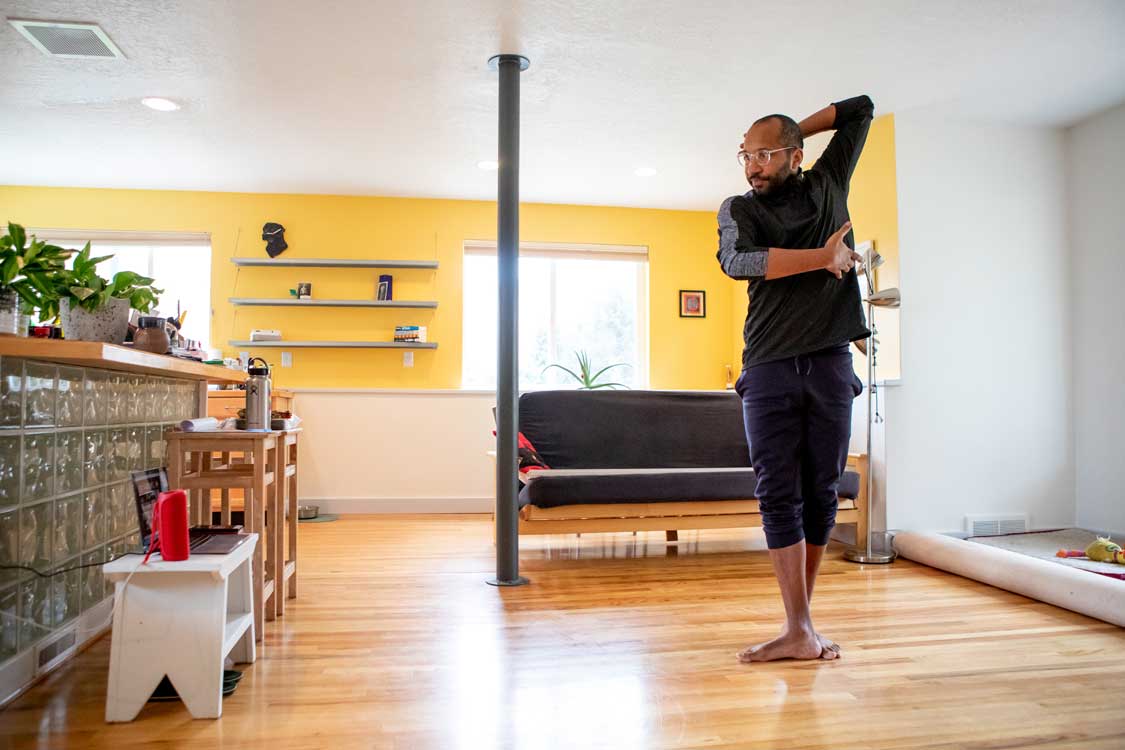While the numbers alone are impressive, nearly 100,000 vaccine doses administered at the Dee Events Center and 17,000 COVID tests conducted at the WSU Davis and Ogden campuses, it was the volunteer effort of Weber State faculty, staff and students that offered the campus community the help it needed most during the pandemic.
Before broad testing was mandated, Matthew Nicholaou, chair of medical laboratory sciences (MLS), and Sally Cantwell, chair of the Annie Taylor Dee School of Nursing, set up a COVID-19 testing protocol under the authorization of Dr. Stephen Scharmann of Intermountain Healthcare.
They worked with their teams, including MLS lab manager Kent Criddle and assistant professor Kendal Beazer and nursing faculty Amy Buckway, Monica Bottelberghe, Connie Merrill, and Trisha Small. The leadership team devised a system for testing symptomatic students, faculty and staff in a mock clinic, so when the state began requiring both symptomatic and asymptomatic testing, Weber State was ready.
To run the testing, they first solicited volunteers from the Dumke College of Health Professions, but then expanded across campus as the need grew. Eventually more than 450 Wildcat volunteers, organized by Jessica Oyler, assistant vice president for Human Resources, signed up and trained.
“All of a sudden, when you have to test 1,000 people five times a week, we needed a massive team,” Nicholaou said. “We put the word out, and it was really cool to see faculty, students and staff from all over campus step up with testing.”
Another critical component of campus COVID containment was contact tracing. Associate professor of nursing Kathleen Cadman helped Mike Davies, emergency manager, establish the protocols, work out the logistics and carry out contact tracing for the 642 people who tested positive within 14 days of being on campus.
Weber State has a long history of engaging with the community to prepare and react to emergencies. COVID Task Force chair and Public Safety director, Dane LeBlanc, helped coordinate the university’s first pandemic response back in 2009 with an H1N1 vaccination clinic at the Dee. He said that training and collaboration made the connection easy when, beginning in early January 2021, Weber-Morgan Health needed a facility to host the community vaccination site.
More than 200 faculty, staff and students from the Dumke College were trained, screened, credential-certified and enrolled with the Weber-Morgan Medical Reserve Corps with help from nursing professors Valerie Gooder and London Draper-Lowe. The group, with organizational support from Sherie Thornton, WSU’s biosafety/emergency response specialist, provided 50% or more of the staffing for the vaccination area at the Dee for six months, including for the days specifically planned and reserved for Weber State faculty, staff and students.
Another 30 non-medical employee volunteers from various departments including police, fire, Facilities Management, Dee Events Center, Human Resources, Marketing & Communications and Environmental Health & Safety, also helped with the process.
Caring for each other and for the community is a Wildcat hallmark that was on full display during the worst moments of the pandemic.

